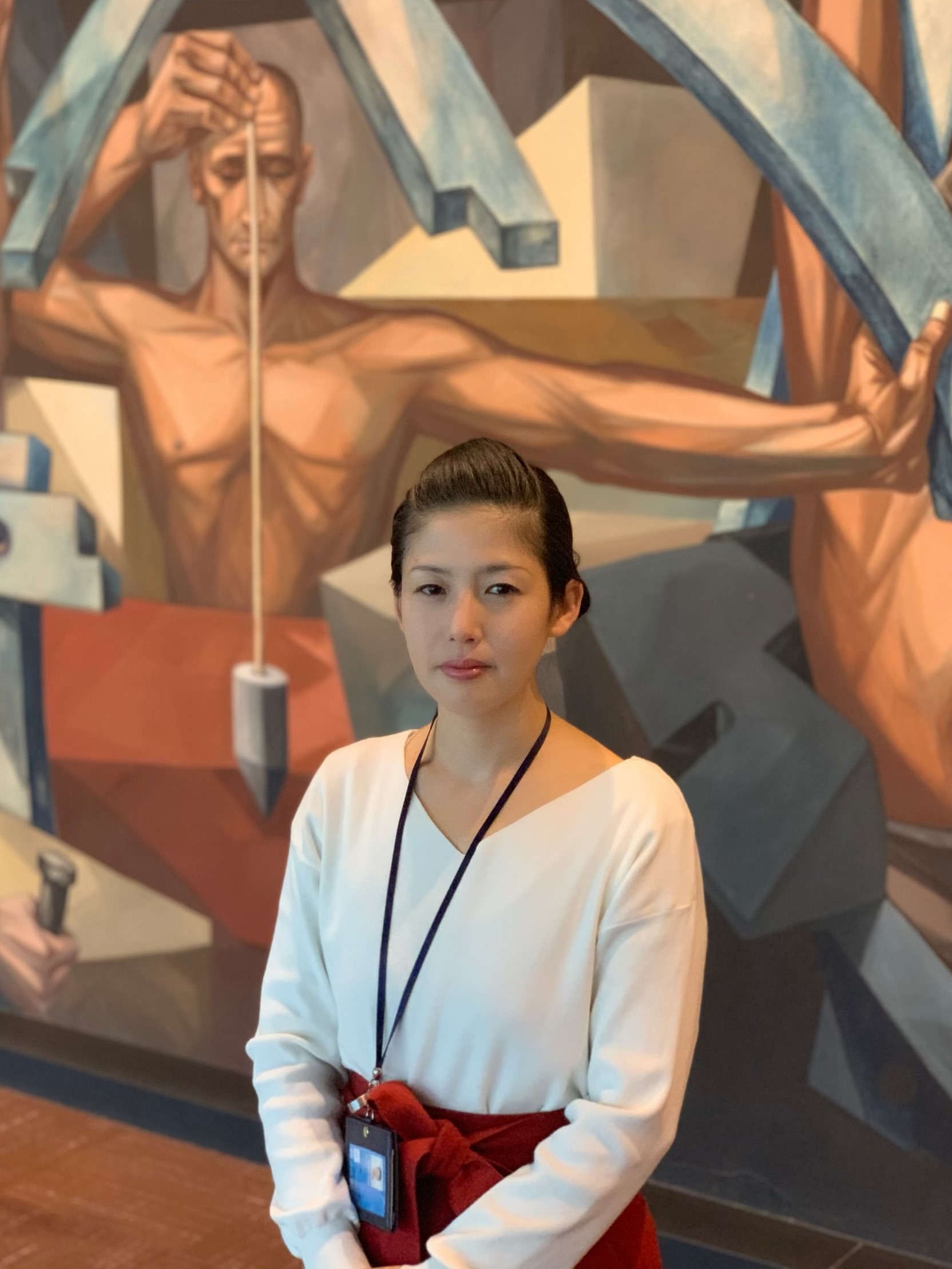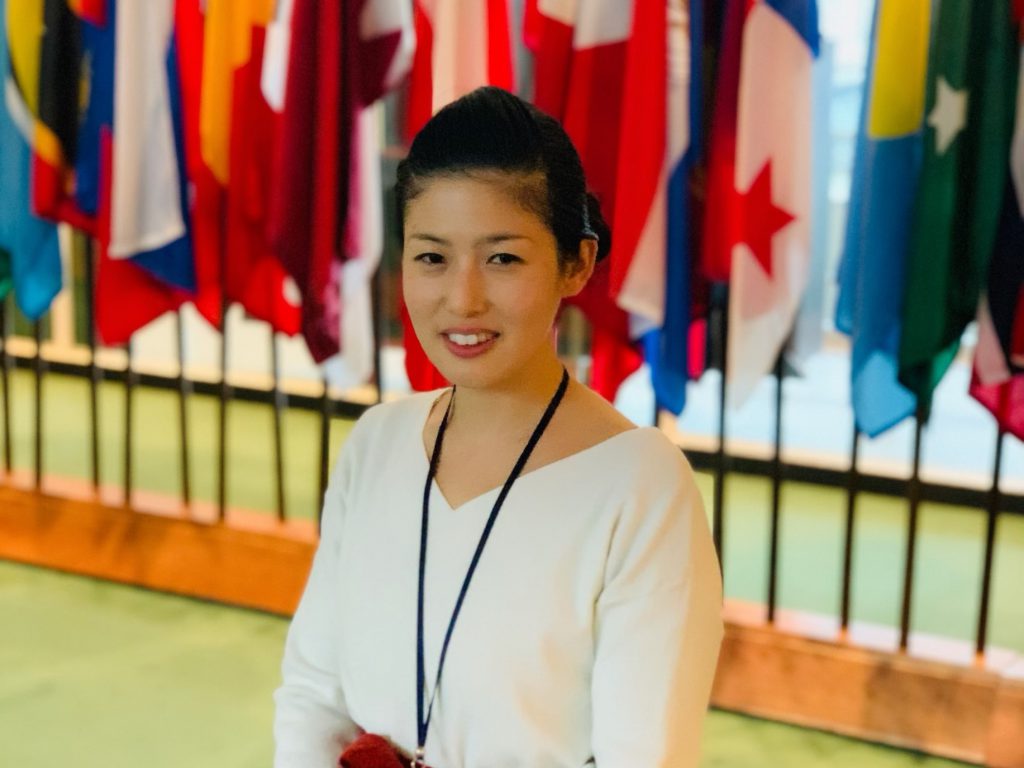Since I graduated from GraSPP, I have been moving from one place to another. Currently, I am located in New York. I still hold on to old documents –lecture notes and presentation handouts I compiled after late-night discussions with classmates—from my time at the University of Tokyo. I keep them because they remain relevant to my professional career. For me, however, GraSPP’s legacy lies not just in these material items. It lies in the experiences that I gained during my time in Tokyo.
First off, the seminar courses I took on international law and armed conflict at GraSPP were very practical and applicable to my current career. In my present role I closely follow the formulation of international policy at the United Nations and the decision-making process of its Security Council.

In front of the mural in the UN Headquarter, depicting “Mankind’s Struggle for Lasting Peace”
GraSPP was different from many undergraduate programs in that most of the classmates I interacted with already had experience in the professional world. They were diverse and international people. I spent hours with the groups I met through GraSPP –identifying hurdles to agricultural development in Africa, debating the ethical reasons the rich intervene in the lives of the poor, and seeking to understand the root causes of the Darfur conflict. Today, these individuals are active in their respective fields related to public policy. A decade later, wherever they are in the world, they remain my close friends. The older you become, the harder it is to find friends who accept you based solely on your beliefs –looking beyond your social and organizational connections. That is why these friends remain precious to me.
Furthermore, because of GraSPP’s degree requirements, I pushed myself to become an expert on a multitude of subjects such as developing economies and financial policy –fields I would not have become familiar with had I pursued a more research-centric master’s program. To be an expert on public policy making, one needs to be aware of what is the latest policy development in different fields. At the United Nations headquarters, I have come to understand that one needs to be familiar with a number of diverse realms –from climate change to artificial intelligence—in the pursuit of international peace and security.
Finally, writing a thesis at GraSPP was one of the foremost reasons I selected the program. Throughout my time at GraSPP I received advice from professors, experts and classmates. Their mix of academic and practical perspectives constantly challenged my theories and made them more applicable to the real policy-making process. This is what makes research at GraSPP so different. This exchange of ideas is what makes GraSPP suitable to all young professionals, including those who already have experience in the professional world.



